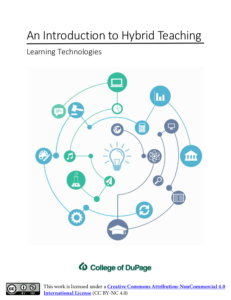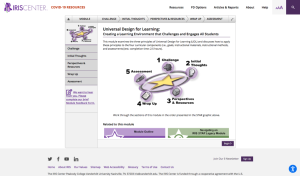 |
August 27, 2021 Volume 27, Number 34 |
General Interest |
Theme: Hybrid Teaching and Learning |
Revisited |
In the News |
General InterestBack to Top | |
 |
|
 |
|
 |
|
 |
|
 |
|
Theme: Hybrid Teaching and LearningBack to Top | |
 |
|
 |
|
 |
|
 |
|
 |
|
RevisitedBack to Top | |
 |
|
In the NewsBack to Top | |
Fruit Flies in Isolation Eat More and Sleep Less, Just Like Us | |
|
Just Like Humans, Lonely Fruit Flies Eat More, Sleep Less https://www.smithsonianmag.com/smart-news/lonely-fruit-flies-eat-more-sleep-lessjust-humans-180978492/ Chronically Lonely Flies Overeat And Lose Sleep https://www.nature.com/articles/d41586-021-02194-2 Lonely Flies, Like Many Humans, Eat More and Sleep Less https://www.rockefeller.edu/news/30860-lonely-flies-like-many-humans-eat-sleep-less/ Loneliness and Social Connections https://ourworldindata.org/social-connections-and-loneliness The Lonely Hour Podcast https://www.thelonelyhour.com/ The Secret Life of Fruit Flies https://news.usc.edu/52998/the-secret-life-of-fruit-flies/ A new study using fruit flies illustrates the impacts of social isolation on behavior and health, drawing comparisons to loneliness in humans. In a study from Rockefeller University, fruit flies isolated in a test tube showed changes to their sleeping and eating patterns. Fruit flies isolated for 1-3 days (acute isolation) slept more and ate slightly more, and fruit flies isolated for 5-7 days (chronic isolation) slept less and ate twice as much food as they typically would. Researchers also observed changes in gene expression, including genes associated with sleep and starvation, even though food was always available. The study also looked at P2 neurons in fruit flies' brains; activating the neurons caused flies to show the same behavior as when chronically isolated, while silencing the neurons removed the behavior. This suggests that P2 neurons might act as a "timer" for periods of isolation and spur eating and sleeping changes during chronic isolation. Many animals have been shown to sleep less and eat more when isolated, but the reasons for this are not fully understood. One possible explanation, according to the authors of the study, is that isolation indicates uncertainty about the future, making it beneficial to stay awake and alert and eat available food. In drawing parallels to humans, the researchers point to neuroscientist Bruce McEwen's 2002 work in which he argued that social isolation and stress can impact human health and contribute to the development of diseases. In the first link, Smithsonian Magazine provides a brief summary of the study and its possible implications for humans. The Nature article in the second link goes into greater detail on the study's methodology and discussion of the results, particularly regarding gene expression and the role of P2 neurons in behavioral changes in isolation. Readers can hear from the study's lead author, Michael W. Young, in the third link from Rockefeller University. In the fourth link, Our World in Data looks at data on loneliness and social context across countries and over time, demonstrating the impacts on humans as well as cautioning against assumptions of causality. Readers can take a deep dive into contemplation of loneliness with The Lonely Hour podcast in the fifth link, in which writer and journalist Julia Bainbridge seeks to destigmatize the subject through conversations with guests about solitude, friendship, boredom, identity, and more. Finally, readers who are wondering how fruit flies can tell us anything about ourselves should check out The Secret Life of Fruit Flies in the sixth link. Sergey Nuzhdin, professor of biological sciences at the University of Southern California, explains why fruit flies are so commonly used for behavioral studies. [HCL] | |





